Historical land in Greece, country loved by tourists. It delights with its picturesque, diverse landscape, access to four seas and a wealth of approximately 2,500 islands. Here you will find pebbly, rocky and sandy beaches, often hidden in beautiful bays. Thanks to this, you can discover Greece again and again. From May to the end of October, the weather is favorable for all vacationers, who can look forward to days full of sun.
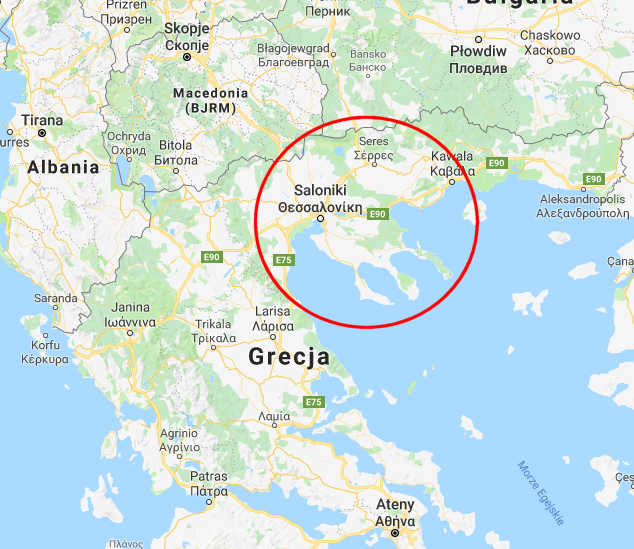
According to Greek mythology, Makedon was the first leader of the Macedonians, a tribe that settled the western, southern
and the central part of the region and founded the Kingdom of Macedon.
According to Herodotus, the Makednoi were a faction of the Dorians. All names most likely come from the Doric adjective makednós, meaning “high”. The Makednoi were considered tall people and it is very likely that they wanted to indicate this in the tribe’s name.
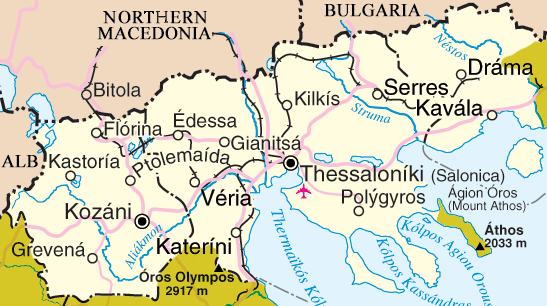
Macedonia is divided into 3 administrative regions, which are divided into 13 nomos.
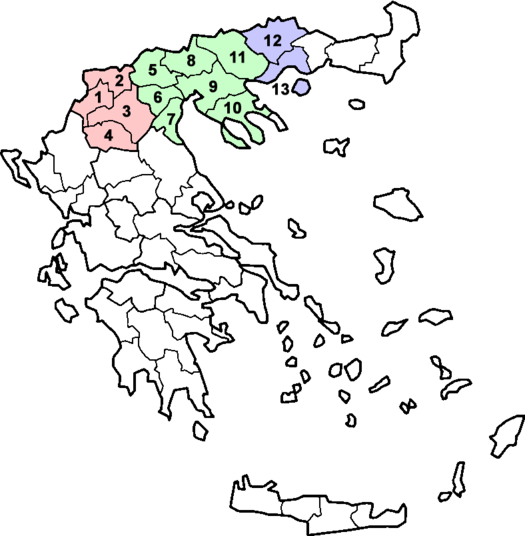
Location of Greece Macedonia. West Macedonia
(Ditiki Makedonia)
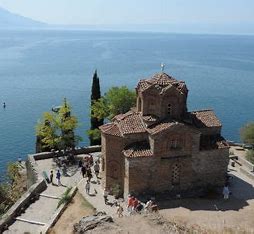
1. Kastoria
2. Florina
3. Kozani
4. Grewen
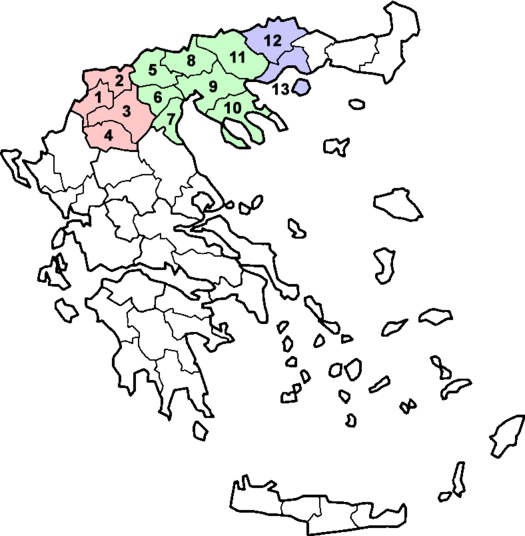
Central Macedonia
(Kendriki Makedonia)
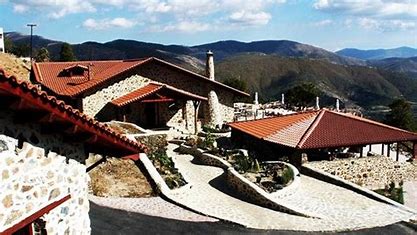
5. Pela
6. Imatia
7. Pieria
8. Kilkis
9. Thessaloniki
10. Chalkidiki
11. Seres

Eastern Macedonia and Thrace (Anatoliki Makedonia kie Thraki)
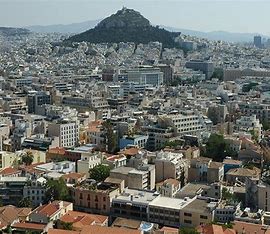
12. Drama
13. Kavala

Greek-Macedonian conflict

Conflict between Greece and the Republic of Macedonia, started by Greece’s refusal to recognize the name of its neighbor. It has been an important issue of Greek and Macedonian foreign policy since 1992, also affecting the process of NATO and European Union enlargement. It ended with the 2019 agreement, as a result of which Macedonia changed its name to North Macedonia.
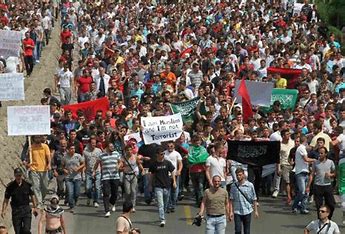
The main conflict factor
The main element of the conflict was Greece’s opposition to the use by the government in Skopje of the name “Macedonia”, considered by the Greeks to be an element of the Greek national heritage, argued by the Greek origin and Greek state tradition of this name, which therefore should not be used to refer to another country
According to Greek mythology, Makedon was the first leader of the Macedonó, a tribe that settled the western, southern and central parts of the region and founded the Kingdom of Macedon. According to Herodotus, the Makednoi were a faction of the Dorians. All names most likely come from the Doric adjective makednós, meaning “high”. The Makednoi were considered tall people and it is very likely that they wanted to indicate this in the tribe’s name.
Extreme voices in Greece raised the lack of any rights
to share the name “Macedonia” on the part of the Slavic population, absent from this region in ancient times. The small Independent Greeks party, which is part of the ruling coalition, also denied the existence of the Macedonian Slavic nation and language. In turn, the Macedonian side raised the problem of the Macedonian minority in Greece.
Macedonians live in Greece in the districts of Florina, Pella and the vicinity of Thessaloniki. However, they are not recognized as a national minority (local authorities define them as ethnic Greeks, Slavized in the past), so they do not have the rights appropriate to this status.
Sprawdź również wersję polska artykułu–>